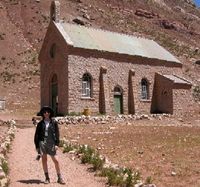Locavorism update
We are 13 days into our one-month locavore challenge, although I'd been preparing ahead before we started. To review, our particular locavore challenge is: Washington state grown only in July, with two exemptions, olive oil and coffee. We are also not counting basic dry-good ingredients such as salt, yeast, baking soda & powder, and spices.I figured out where to buy things, ordered Washington-wheat flour from Winthrop, and started practicing my bread-baking skills.
Here are some things I’ve learned so far.
Lesson #1 - This isn't bad at all. There's lots of great stuff to eat from Washington state. The farmers markets offer a wealth of produce, we can bake our own baked goods, use honey instead of sugar, and eat plenty of meat, eggs and dairy for protein.
Lesson #2 - BUT: It would be completely impossible without farmers markets, and the family-run butcher shop in our neighborhood. If we were relying on the local grocery stores - even the ones, like PCC and Whole Foods, that claim to support locally produced food - we'd have no produce whatsoever, and a limited amount of meat and dairy.
Lesson #3 - I do not much care for okra. And that's all I'll say about that.
Lesson #4 - The perniciousness of sugar and salt: Eating whole foods cooked from scratch reveals just how much sugar and salt we generally eat. Having eliminated sugar, I am going through a 16-ounce jar of honey per week. That includes sweetening my morning coffee every day, as well as up to ¼ cup of honey every time I bake bread. I’d probably be using more in the winter, when we wouldn’t have the sweetness of fresh fruit. Similarly, having eliminated all processed foods I’m really aware of how much less salt we’re eating.
Lesson#5 - Good meat is...good! Though historically leaning vegetarian, we’ve been buying high-quality meat from our neighborhood meat market, and I’ve taken to cooking with bacon – good, thick, juicy bacon. I now understand why it has been prized, historically, not only for its keeping power but for the flavor (and salt!) that it adds.
Lesson #6 - Baking bread is fun! I’m baking two to three loaves per week. From start to finish, elapsed time is about 4 hours with two rising periods, a bit more with three rising periods, which makes a much lighter bread. I’m getting the hang of it, and I find the old saying is true: kneading bread is soothing. We’ve also tried wheat tortillas once, which were a little heavy but very easy to make, so we’ll do that again soon and hopefully improve. I tried cookies today for the first time - hazelnut shortbread thinghies with whey powder and honey instead of sugar.
Lesson #7 - I haven’t been appreciating juice enough. This month we’ve been relying on the very excellent apple juice from Rockridge Orchards, available at our farmers’ market for a whopping $7 per half-gallon. To supplement, I bought a steam juicer and was able to create a very lovely, if rather tart, half-gallon of juice. Using FIVE POUNDS of fruit. Clearly, I have been taking my juice for granted. And by the way, the steam juicer leaves behind a lovely fruit mush which, with honey and some cider vinegar as preservative, makes a great compote for toast or yogurt. Which leads me to...
Lesson #8 - Making yogurt is easy, boiling milk is a pain in the neck: I’ve found all dairy products available locally except for yogurt, for some reason. But I’d heard that yogurt is easy to make. All you need is a quart of milk, and ½ cup of yogurt, to make another quart of yogurt. I'm only about 50-50 on yogurt success so far, for some reason. Unlike bread, this is not something I see myself making from scratch in the long run.
Lesson #9 - Bring back Home Ec! I hit middle & high school in the late ‘70s and early ‘80s, when the feminist revolution had exposed the sexism of offering home economics to girls and shop to boys. As a result, we got neither. I didn’t miss it at the time, but now I’m realizing how little I know about the basics of food preparation and preservation. Every week I find myself asking remedial questions like: What’s the difference between blanching and parboiling? Does buttermilk keep longer than regular milk, and if so why? Is it better to freeze berries or can them? Why doesn’t whole wheat rise as well as white? I hope these days young people are getting some kind of education on food.
Lesson #10 - A gal's got to have chocolate on her birthday: Today happens to be my birthday, and we cheated for the first time. We bought Halibut flown in from Alaska, and some Tillamook Udderly Chocolate ice cream. Mmmmm....
That's the rundown so far. Enrico isn't as enthused about this process as I am, but he's gone with the program so far. I think he misses corn chips most of all. A friend who's a lifelong Washington resident told us he thinks one of the Native tribes grows corn and makes cornmeal, so perhaps that's available after all; more research is in order!

1 comment:
Hey - I love your experiment! I read Plenty a while ago and think about trying it...just think about it. However, we differ on 2 major points. A. I can't make bread to save my life, and B. yogurt is easy! Back in the hippy days you just added some plain to a jar and put it on top of the refrigerator until set. Of course, refrigerators are generally no longer warm on the top. I still make my own granola but haven't done yogurt for quite a while.
Post a Comment